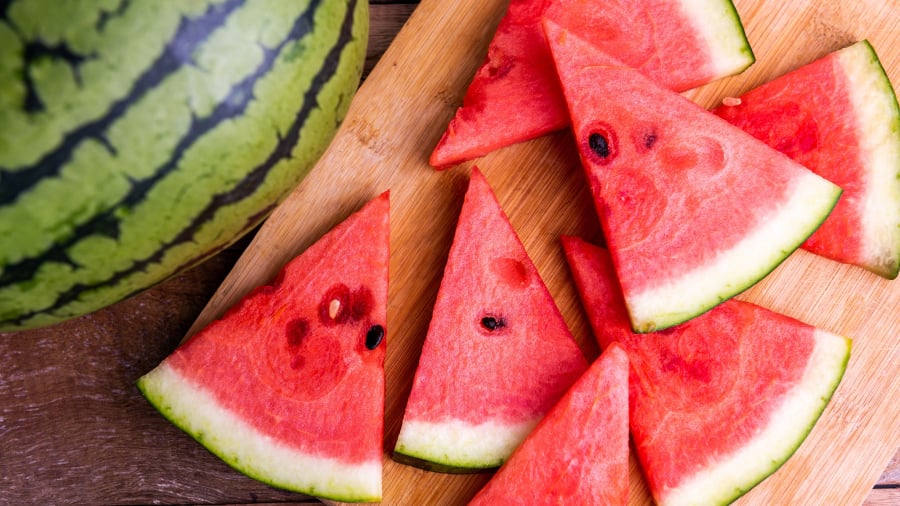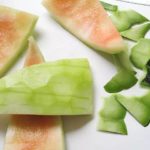Khyati Dand, a Western and Asian culinary culture expert from Mumbai, India, shares her tip for keeping watermelon slices fresh for as long as possible: minimize air exposure.
Watermelon tends to lose its flavor and moisture when cut, leading to dryness and a bland taste. Watermelon acts like a sponge, absorbing the flavors of nearby foods.

Watermelon
Thus, the best way to store cut watermelon is to place it in an airtight container and refrigerate. However, watermelon releases a lot of water after cutting, so it’s essential to frequently drain the liquid or line the container with paper towels to absorb excess moisture, preventing the melon from becoming soggy.
Alternatively, you can wrap the watermelon with plastic wrap if you’ve cut it into large pieces, keeping the rind intact.
Even though it can be stored for up to five days, it’s best to consume the watermelon within 1-2 days, as it will be at its freshest, juiciest, and sweetest during this time.
If you can’t finish it within that time frame, you can freeze it by cutting the watermelon into cubes or scooping it into small balls, placing them on a baking sheet in a single layer, and then freezing them. Once the pieces are frozen solid, transfer them to a zip-top bag or airtight container. However, make sure to remove the rind and seeds beforehand, as they become challenging to deal with once frozen.
The only downside to freezing watermelon is that its texture changes significantly upon thawing. Watermelon is 92% water, and essentially, this water melts during the defrosting process. Instead of crisp, firm pieces, you’ll end up with soft, mushy melon.
It’s best to use frozen watermelon for granitas, smoothies, or juices.
Who Should Avoid Eating Watermelon?
Some health advisories suggest that individuals with irritable bowel syndrome (IBS) should refrain from consuming watermelon.
IBS is a digestive disorder characterized by symptoms such as stomach pain, diarrhea, bloating, or constipation. The exact cause of IBS is unknown. However, a study published in the Medical Hypotheses journal suggests that IBS may be linked to poor absorption of the sugar fructose. Fructose is a natural sugar found in honey and fruits.
The ability to absorb fructose varies among individuals. Some people can absorb up to 30 grams of fructose, while others can only handle a maximum of 5 grams. Watermelon contains high levels of natural fructose. Those with IBS who cannot absorb this sugar may experience worsened symptoms if they consume watermelon.
In addition to IBS, inflammatory bowel diseases such as Crohn’s disease and ulcerative colitis are also advised to approach watermelon with caution. Moreover, those with these conditions should also limit their intake of omega-3 fatty acid-rich foods like fish and flax seeds.
People with gastroesophageal reflux disease (GERD) can eat watermelon but should do so in moderation. Watermelon is rich in lycopene, and for those with reflux, lycopene can cause discomfort such as stomach spasms and heartburn, making the condition worse.
9 Gorgeous Ways to Decorate a Mid-Autumn Festival Table
With the traditional Mid-Autumn Festival comes a long-time beloved activity – breaking the tray! Every year, children look forward to this exciting event, and what makes it even more fun is the brightly-colored, fruit-laden trays that make for an unforgettable childhood memory. If you’re interested in creating your own beautiful Mid-Autumn tray this year, then let us show you some of our favorite decorations!





































